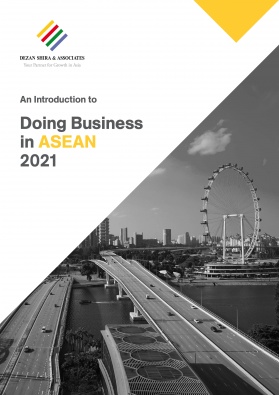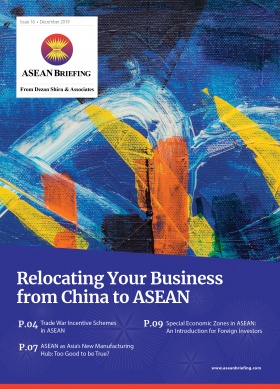Myanmar’s Prospects for Post-Coup Foreign Trade & Investment
Op/Ed by Chris Devonshire-Ellis
- Prospects depend on the extent of US sanctions
- ‘One Year’ Military term in power likely to be scrutinized
- US businesses may need to consider other Asian sourcing options
Following Monday’s military coup, big questions remain over what happens next and especially the prospects for existing and future foreign investment in the country. We examine the possibilities.
What happened and why?
The military moved in because of an alleged ten million vote discrepancy in the November national elections and challenged this result. The Myanmar election commission basically told them to get lost – there is no procedure in the Constitution to allow a recount. That situation was inflamed by a statement published last week by the Diplomatic Missions of Australia; Canada; the Delegation of the EU and European Union; Denmark, Czech Republic, Finland, France, Germany, Italy, Netherlands, Spain, and Sweden; as well as Switzerland, the United Kingdom, the United States, Norway, and New Zealand which stated:
“We affirm our support for Myanmar’s democratic transition and efforts to promote peace, human rights, and development in the country. We look forward to the peaceful convening of the Parliament on February 1 and the election of the President and speakers. Once again, we congratulate the people of Myanmar on their historic participation in the country’s recent general election. We urge the military, and all other parties in the country, to adhere to democratic norms, and we oppose any attempt to alter the outcome of the elections or impede Myanmar’s democratic transition. We support all those who work toward greater democratic freedoms, lasting peace, and inclusive prosperity for the people of Myanmar.”
This means the perceptions are different: The West thinks the coup was anti-democratic, the Myanmar military feel they were upholding the democratic process and preventing fraud. The fact there was no provision for any recount and the pressure to accept the results by Western Embassies in Myanmar caused the Military to act. They have subsequently stated they will remain in power for a period of one year and will arrange new elections.
There are some ironies here on behalf of the West, many nations had called for the elected leader of Myanmar, Aung San Suu Kyi, to be ‘stripped of her Nobel Peace Prize’ and to face sanctions and possibly criminal proceedings in view of inactions relating to alleged genocide of Myanmar’s Muslim Rohingya people. Many had called for her imprisonment. Now she is being held under house arrest by the Military, they are calling for her release. Clearly, the Western political perspective is inconsistent.
The prospects for sanctions
Most of the military personnel now in power in Myanmar are already under sanctions by the United States. General Min Aung Hlaing, the Commander-In-Chief, is unable to travel to the United States and has had assets there frozen, although new President Biden has stated additional sanctions will also be imposed ‘shortly’. This term is vague and can be interpreted in several ways.
The imposition of additional sanctions against individuals and certain trade
This is almost certain to happen and be selectively targeted in criminalizing any financial transactions with selected Myanmar military personnel. This could have some impacts, General Min’s son for example owns Myanmar’s largest consultancy handling FDA approvals. Other high-ranking military personnel own equity in some of Myanmar’s largest companies, although that could be divested elsewhere. Global sanctions are likely to be placed on the provision of weapons and related items that support the Myanmar military.
Impact on US businesses trading with or investing in Myanmar
The impact of this depends upon whether Washington bars US investors from conducting trade or investment in Myanmar. Bilateral trade between the US and Myanmar was about US$1.3 billion last year, with about US$821 million exported to the US from Myanmar. Most of that is on apparel and footwear and can easily be re-sourced from nearby countries such as Bangladesh or Vietnam. US companies trading with Myanmar should be looking at these and other alternative markets.
As at the end of 2020, there were an estimated 130 US businesses (of a total of 65,000 foreign investors) with a total investment worth about US$250 million. This means that US investors are just 0.2% of the total number. Annual FDI into Myanmar has been about the US$5 billion range. This is probably not enough to prevent Washington from placing these investments into trouble, although there will be some casualties as some will have recently relocated to Myanmar following the US trade dispute with China. US investors in Myanmar may want to examine a restructuring of their business to divest themselves of direct ownership while still retaining effective control – depending upon whether Washington criminalizes US nationals’ trade with Myanmar.
Impact of US sanctions if imposed on global businesses trading with or investing in Myanmar
This is a nuclear option and would also punish the entire ASEAN bloc of nations in addition to other countries, such as Australia, China, India, Japan, New Zealand, and South Korea all of whom have Free Trade Agreements that include Myanmar. Accordingly, I think this an unlikely scenario, although if this occurred it would have a serious impact on regional trade and investment and completely isolate Myanmar.
The reason I see this as unlikely is three-fold:
- The Military have shown good faith to some extent by retaining the Pre-Coup Chief Justices and Anti-Corruption officials;
- They have stated they will hold power for one year before new elections will be held. This period will probably also bring in some constitutional amendments considering the recount issue.
This means the US could take the Military at their word – and see if elections are to be held. That twelve-month timeframe also gives Washington time to discuss with ASEAN and other Asian leaders a plan of action in terms of additional sanctions to be placed upon Myanmar should the Military not keep their word about holding elections.
- The Military and many of their senior officials hold equity in numerous Myanmar SOEs and private businesses. It is not in their financial interests, longer-term, to isolate the country and see these investments degrade. In fact, as I argued yesterday, the military might well act more assertively when it comes to completing Belt & Road Initiative projects that have been earmarked for Myanmar. This was discussed in the article Belt And Road Projects In Myanmar Likely To Proceed In Light of Military Coup.
Looking Ahead: Opportunities one year from now
Myanmar has been making efforts to boost FDI and has had some success with this. In November last year, foreigners were permitted to invest in the Myanmar Stock Exchange for the first time. My view is that it would foolish for the Myanmar military to overstay their stated control of the country, and I feel this is unlikely. They retain close ties with the Thai military, who have themselves considerable experience in taking power when local politics become overly toxic. I expect the Myanmar military to take that model.
If so, sticking with Myanmar at this time – provided that Washington is not overly aggressive – can be considered the best option for now, although big-ticket Western investments will wait to see what happens.
Other potential
China is used to dealing with these situations and the Myanmar Military and General Min have close connections to Beijing. China and Chinese businesses will continue their investments into Myanmar. Russia too may become more of a player, Moscow has also been making inroads into ASEAN and has signed off very successful Free Trade Agreements between Singapore and Vietnam and the Eurasian Economic Union. Russia’s Deputy Minister for Trade was in Naypyidaw just over a year ago. Based on what happened with Vietnam, you could expect to see some Russian capital flow into Myanmar – and possibly rather more than the US has invested into Myanmar. Russian investments into Vietnam hit US$10 billion inside the first two years of that FTA. Accordingly, a Myanmar-EAEU FTA might be on the cards, the two sides have been discussing this, and Putin would be happy to send Biden a signal.
Asian regional reaction
At a meeting of the UN security council yesterday, China and Russia blocked a statement condemning the coup and calling for its reversal, while India and Vietnam also voiced reservations concerning criticism. Thailand has called the coup ‘an internal matter’. It is unlikely the coup went ahead without advance warning being provided to China, India and Thailand, each of whom have significant borders with Myanmar and who will not wish to see refugee movements or military activity nearby. As far as Myanmar’s neighbors are concerned, the matter is over and done with.
In summary, then, we will have to wait and see what Washington’s response will be. There will be no appetite from Asia in placing anything more than targeted individual sanctions impacting the Myanmar military Generals. The answer to that will soon be known, but I expect minimal impact and a year’s grace for the Generals to do as they promised.
About Us
ASEAN Briefing is produced by Dezan Shira & Associates. The firm assists foreign investors throughout Asia and maintains offices throughout ASEAN, including in Singapore, Hanoi, Ho Chi Minh City, and Da Nang in Vietnam in addition to Batam and Jakarta, in Indonesia. We also have partner firms in Malaysia, Bangladesh, the Philippines, and Thailand as well as our practices in China and India. Please contact us at asia@dezshira.com or visit our website at www.dezshira.com.
- Previous Article Singapore’s Digital Economy Partnership Agreement
- Next Article India, ASEAN Agree to Review FTA Scope, Address Uneven Market Access







